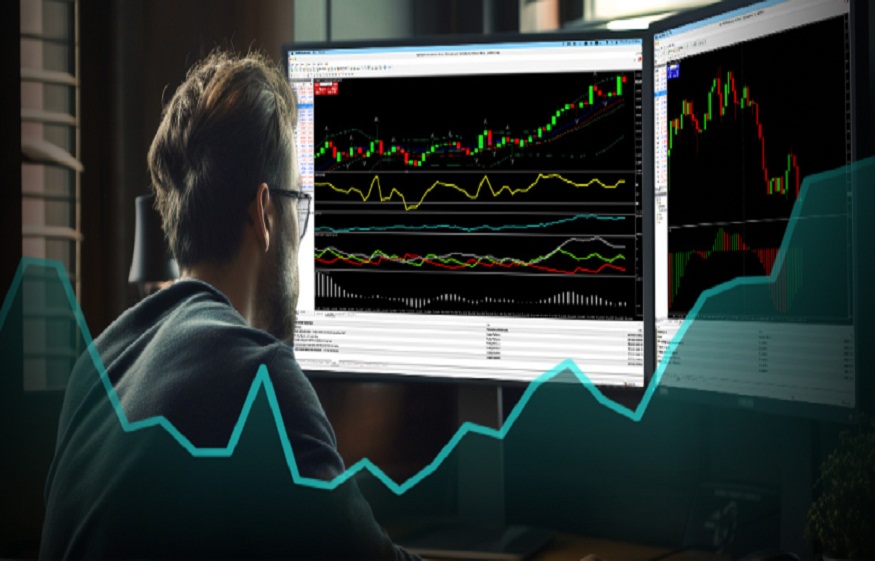Contracts for Difference (CFDs) are a popular tool in modern trading, allowing traders to speculate on the price movements of various global assets, including stocks, currencies, commodities, and indices. To succeed in CFD trading, understanding the influence of global economic trends on these assets is crucial. This guide explores how global economic factors impact CFD trading, offering insights to help traders make informed decisions in a dynamic market environment.
The Role of the Global Economy in CFD Trading
The overall health of the global economy significantly affects online CFD trading. Economic conditions, whether thriving or declining, influence the value of assets traded as CFDs. For instance, positive economic data from a country can boost confidence in its currency or stock market, which in turn impacts CFDs linked to those assets. On the other hand, economic downturns or political instability can lead to asset depreciation, affecting CFD values negatively.
Interpreting Key Economic Data
Economic indicators are major drivers of market sentiment and CFD prices. Indicators such as GDP growth rates, employment figures, inflation levels, and central bank interest rate decisions reveal an economy’s health and potential future trends. For example, an unexpected interest rate hike by a central bank can strengthen a nation’s currency, impacting currency-related CFDs. By monitoring these data points, traders can anticipate market movements and adjust their strategies accordingly.
Global Events and Market Volatility
Major global events can create volatility, a condition that directly impacts CFD trading. Geopolitical tensions, elections, trade negotiations, and even global health crises can trigger rapid fluctuations in asset prices. While such events pose risks, they also present opportunities for well-prepared traders. Successful CFD traders closely follow global news and adjust their strategies to manage risks and capitalize on potential gains during times of high market volatility.
Market Sentiment and Its Impact on CFD Prices
Market sentiment, or the general attitude of investors toward a particular market or asset, strongly influences online CFD trading. Positive sentiment can drive prices up, while negative sentiment can push them down. Market sentiment is shaped by economic news, political developments, and other global factors. Understanding market sentiment can help traders predict market trends and make more informed trading decisions, aligning their strategies with investor attitudes.
Understanding Market Interconnections
In today’s trading environment, markets and assets are closely connected. For example, there are often correlations between commodities and certain currencies or between stock markets and interest rates. By understanding these interconnections, traders can better anticipate how a shift in one market might impact another, enabling them to make more strategic trading decisions. Recognizing these relationships helps traders capitalize on broader market trends that affect their CFD positions.
Leveraging Technological Advancements in Trading
Technology has transformed CFD trading, providing access to advanced analytical tools, real-time data, and automated trading systems. These tools allow traders to monitor global economic conditions and respond to market trends quickly and accurately. Utilizing these technologies effectively can improve decision-making and help traders manage their positions in real-time, enhancing their ability to capitalize on global economic changes.
Managing Risk in a Global Economy
With the impact of global economic factors, effective risk management is essential in CFD trading. This includes diversifying trades across multiple assets, using leverage responsibly, and setting stop-loss orders to limit potential losses. By practicing sound risk management, traders can better protect their capital from the volatility and uncertainties inherent in global markets.
The Importance of Continuous Learning and Adaptation
The global economic landscape is ever-evolving, requiring traders to adapt continually. Strategies that work today may not be effective tomorrow, making ongoing learning and flexibility vital for long-term success. Successful traders consistently track global economic trends, review their strategies, and remain open to adopting new techniques as market conditions change.
Global economic trends play a significant role in shaping online CFD trading. By understanding the influence of economic indicators, monitoring global events, managing risks, and leveraging technology, traders can navigate the complexities of the global market. Continuous learning and adaptation are essential, allowing traders to respond to changing economic conditions and optimize their CFD trading strategies. With an informed and strategic approach, traders can successfully navigate the dynamic world of CFD trading.


